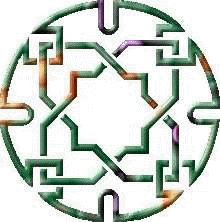

Philosophers of the Arabs



| Contemporary |
| Modern |
| Non-Arabs |
| Societies |
| How to Support |
Roger Garaudy
From Marxist Theorist to Islamic Thinker
1-
Early Life and Formative Years
Roger Garaudy was born on 17
July 1913 in Marseille, France, to working-class Catholic parents. His early
years were shaped by modest means and a strong moral framework. At just 14, he
converted to Protestantism, signaling an early openness to spiritual and
ideological change.
During World War II,
Garaudy served in the French army, was captured by Vichy forces in Algeria, and
later joined the French Resistance, contributing to underground radio and the
newspaper Liberté. This period cemented his belief in political
engagement as a moral duty.
2-
Marxism and the Communist Years (1933–1970)
In 1933, Garaudy joined the
French Communist Party (PCF), drawn by Marxism’s promise of social justice and
equality.
Garaudy’s Marxism was never
static. While he initially supported Soviet orthodoxy (including the 1956
invasion of Hungary), by the late 1960s he began questioning the dogmatism of
the Soviet model. His criticism of the PCF’s stance on the 1968 student
movement and the Warsaw Pact invasion of Czechoslovakia led to his expulsion in
1970.
3-
Philosophical Shift and Critique of Modernity
Post-expulsion, Garaudy
embarked on a philosophical reorientation. Disillusioned with Soviet
communism, he turned toward humanist Marxism, existentialism, and
interfaith dialogue.
4-
Conversion to Islam (1982)
Garaudy’s search for a
synthesis between spirituality and social justice culminated in his conversion
to Islam in 1982.
5-
Legacy and Final Years
Despite the controversies,
Garaudy remained active in peace advocacy and cross-cultural dialogue until his
death in 2012.
His intellectual journey —
from Catholicism to Protestantism, Marxism, Catholicism again, and finally
Islam — reflects a life of constant questioning and ideological reinvention.
6-
Key Themes in Garaudy’s Intellectual Evolution
|
Phase
|
Core Beliefs
|
Key Works
|
Turning Points
|
|
Early Faith
|
Catholic →
Protestant
|
—
|
Spiritual
curiosity in adolescence
|
|
Marxist Period
|
Orthodox Marxism,
Soviet-aligned
|
La théorie
matérialiste de la connaissance
|
Joining PCF
(1933), WWII Resistance
|
|
Humanist Marxism
|
Critique of Soviet
dogma, openness to religion
|
Pour un réalisme
sans rivages
|
Expulsion from PCF
(1970)
|
|
Islamic Philosophy
|
Spiritual-material
synthesis, interfaith dialogue
|
Appels aux vivants
|
Conversion to
Islam (1982)
|
|
Controversial
Phase
|
historical
revisionism
|
Les Mythes
fondateurs de la politique israélienne
|
Readings:
-
Why Roger Garaudi
Still Matters
Back to Muslim thinkers and philosophers of non-Arab origins List